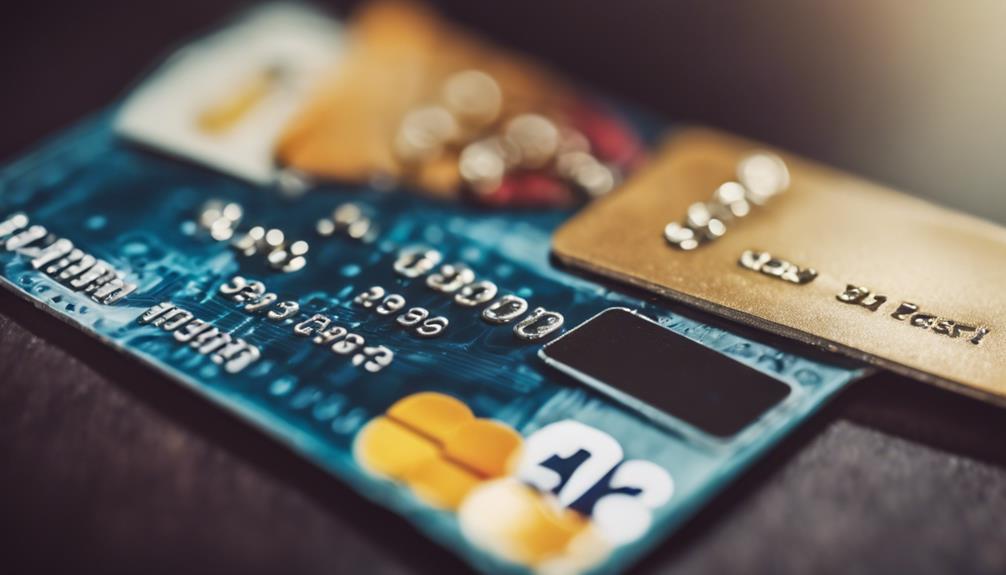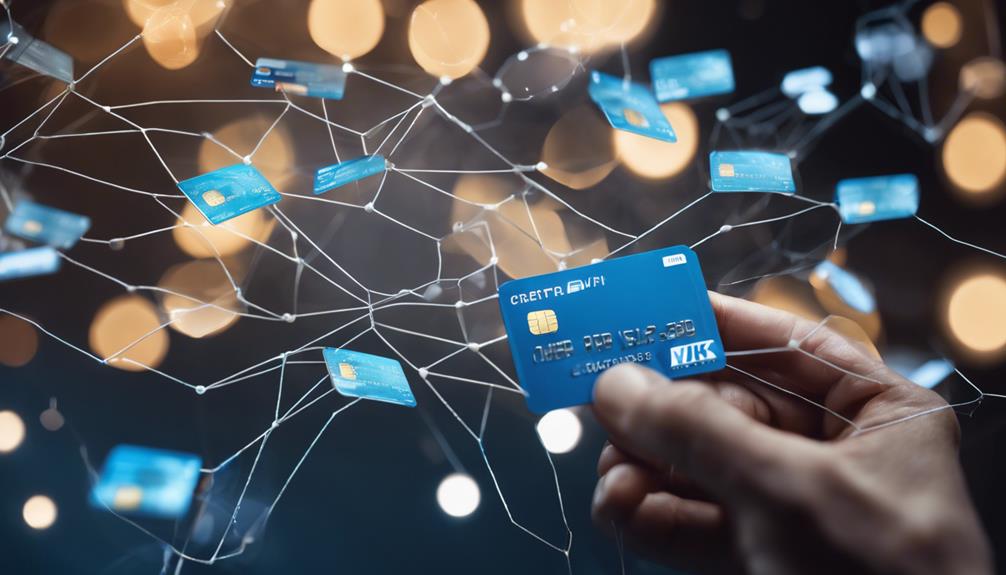Enhance your payment system security by implementing secure gateways, adhering to PCI DSS standards, and utilizing robust fraud detection tools. Prioritize data protection and encryption protocols to safeguard transactions. Guarantee data confidentiality through SSL/TLS and stay proactive with encryption updates. Tokenization minimizes data breach risks and maintains secure transactions. Explore biometric and two-factor authentication for enhanced verification. Incorporate machine learning for precise fraud detection capabilities. Employ a multi-layered security approach with behavioral analytics and collaboration with cybersecurity experts. By fortifying your defenses, you protect sensitive information and transactions in the digital world with thorough security measures.
Key Takeaways
- Employ secure payment gateways and maintain PCI DSS compliance.
- Implement robust fraud detection mechanisms.
- Prioritize data protection and encryption protocols.
- Regularly update encryption methods for secure transactions.
- Utilize SSL/TLS protocols to ensure secure data transmission.
Importance of Payment Security Measures

Ensuring strong payment security measures is essential for safeguarding financial transactions against unauthorized access and fraud. Implementing secure payment gateways, maintaining PCI DSS compliance, and employing robust fraud detection mechanisms are key components of payment security measures. By prioritizing data protection and compliance with industry standards, businesses can build customer trust and safeguard sensitive financial transactions.
Complying with encryption protocols not only guarantees secure data transmission but also minimizes the risk of data breaches. Fraud detection tools play an important role in identifying and preventing unauthorized activities, further enhancing the security of financial transactions. Adhering to PCI DSS compliance standards demonstrates a commitment to safeguarding customer information and maintaining the integrity of payment processes.
Encryption for Secure Transactions

Encrypting data is vital for securing transactions and protecting sensitive information. By utilizing strong encryption protocols like SSL/TLS, you can guarantee that data remains confidential and integral during exchanges.
Implementing encryption measures is essential for preventing data breaches and maintaining trust in payment systems.
Data Encryption Importance
To safeguard sensitive information during transactions, implementing strong data encryption is vital. Data encryption plays a fundamental role in ensuring secure online transactions.
By utilizing SSL/TLS and other robust encryption protocols, you can guarantee data integrity, privacy, and authenticity. Websites with SSL certification signal a secure environment for conducting transactions. It's crucial to stay proactive by regularly updating encryption methods to stay ahead of potential cyber threats.
Encryption transforms data into a coded form, making it inaccessible to unauthorized parties. By prioritizing data encryption, you create a robust layer of security that safeguards your information and instills trust among users engaging in online transactions.
Secure Transmission Methods
By implementing secure transmission methods, you can guarantee the protection of sensitive data during online transactions. Secure Sockets Layer (SSL) and Transport Layer Security (TLS) protocols play an important role in encrypting data to secure data integrity, privacy, and authenticity. Utilizing strong encryption algorithms and effective key management practices is essential for safeguarding payment information from unauthorized access. Regular updates and assessments of encryption methods are necessary to stay proactive against potential security threats. Encryption serves as a fundamental security measure, shielding financial transactions and thwarting unauthorized access to sensitive data.
| Encryption | Key Management |
|---|---|
| SSL/TLS Protocols | Strong Encryption Algorithms |
| Data Integrity | Key Management Practices |
| Privacy | |
| Authenticity |
Tokenization for Data Protection

Tokenization technology is an essential tool in enhancing the security of payment systems by replacing sensitive data with unique tokens. This process plays a vital role in data protection, as it reduces the risk of data breaches. By using tokens, which are meaningless to hackers, the original card information remains secure.
Implementing tokenization guarantees a secure payment experience for customers by safeguarding their sensitive information during transactions. Not only does tokenization enhance security, but it also aids in compliance efforts by securely storing and processing customer data. The use of unique tokens minimizes the impact of data theft, ultimately leading to a reduction in risks associated with payment security.
Authentication Methods for Verification

When it comes to authentication methods for verification in payment systems, there are several options available:
Biometric authentication offers a secure way to confirm user identities using unique biological features like fingerprints or facial recognition.
Two-factor authentication provides an added layer of security by requiring two forms of identification for user verification, enhancing the protection of payment transactions.
Secure token generation through dynamic security codes guarantees each transaction is uniquely verified, adding an extra level of security to payment system access.
Biometric Authentication for Security
Utilizing unique physical characteristics such as fingerprints or facial scans, biometric authentication enhances security in payment systems by providing a reliable and convenient method for identity verification. This technology offers a high level of security by making it challenging to replicate or steal biometric data, unlike traditional methods.
By incorporating biometric authentication, payment systems can reduce the risk of unauthorized access and protect sensitive information effectively. Moreover, it guarantees that only authorized individuals can complete transactions, thereby enhancing security and preventing fraud.
Adopting biometric authentication not only strengthens security measures but also enhances the user experience by offering a convenient and secure way to interact with payment systems, making transactions smoother and more secure for all users.
Two-Factor Verification Process
Enhancing security in payment systems, the two-factor verification process requires users to provide two forms of identification for access, adding a substantial extra layer of protection. Common methods like biometric scans, authenticator apps, and hardware tokens are used for two-factor authentication, reducing the risk of unauthorized access. By implementing two-factor verification processes, the security of payment systems can be greatly enhanced, safeguarding sensitive information.
Businesses and individuals can customize settings to meet specific security needs and preferences. This flexibility allows users to tailor the authentication process according to their security requirements, ensuring a robust defense against unauthorized entry into payment systems. Implementing two-factor authentication is a proactive approach to securing sensitive data and transactions.
Secure Token Generation
Secure token generation methods, such as hardware tokens, mobile authenticator apps, and SMS-based verification, play an important role in enhancing the security of payment systems by providing unique and time-sensitive authentication tokens. These tokens are randomly generated and used to authenticate users during transactions, acting as a one-time password that adds an additional layer of security. By implementing secure token generation, you can prevent unauthorized access and bolster your payment system security to a great extent. Take a look at the table below for a clearer understanding of how secure token generation works:
| Secure Token Generation | Functionality | Importance |
|---|---|---|
| Unique and random tokens | Authenticate users | Prevent Unauthorized Access |
| Time-sensitive tokens | One-time password | Enhance Security |
| Hardware tokens | Mobile apps | SMS-based verification |
Fraud Detection and Prevention Strategies

To effectively combat fraud in payment systems, leveraging advanced algorithms for real-time analysis of transaction patterns is essential. Fraud detection systems rely on these advanced algorithms to sift through vast amounts of data and pinpoint any suspicious activities.
Real-time monitoring plays a pivotal role in swiftly identifying and blocking fraudulent transactions before financial damage occurs. By incorporating machine learning technology, fraud detection becomes more precise as it can adapt to the ever-evolving tactics of fraudsters.
Employing a multi-layered security approach that includes biometric authentication and behavioral analytics adds an extra level of protection against fraudulent activities. Continuous collaboration with cybersecurity experts and staying updated on fraud prevention systems are critical in proactively addressing emerging threats in payment systems.
PCI DSS Compliance Requirements

Implementing PCI DSS compliance requirements is essential for businesses handling credit card transactions to ensure secure payment systems and safeguard cardholder data. The Payment Card Industry Data Security Standard (PCI DSS) consists of 12 requirements aimed at securing payment systems and protecting cardholder data.
By complying with PCI DSS standards, businesses can effectively prevent data breaches and fraud, ensuring a safe environment for transactions. It's vital for businesses to regularly assess and validate their compliance with these standards to maintain a secure payment system.
Failure to comply with PCI DSS can lead to significant consequences such as hefty fines, reputational damage, and an increased risk of data breaches. Therefore, it's imperative for businesses to prioritize PCI DSS compliance to uphold the integrity of their payment systems and safeguard sensitive cardholder information.
Secure Payment Gateway Solutions

When enhancing payment systems with secure gateway solutions, businesses prioritize encrypting transaction data to protect sensitive information from unauthorized access. Payment gateways play an important role in ensuring data protection and transaction security. By complying with PCI DSS standards, these gateways create a secure environment for processing credit and debit card transactions.
Secure Socket Layer (SSL) technology is commonly utilized to establish a secure connection between customers and businesses, safeguarding data during transmission. Additionally, tokenization within payment gateways replaces cardholder data with unique tokens, reducing the risk of data breaches and fraud. Secure Electronic Transaction (SET) protocols further enhance security by encrypting payment data, preventing fraudulent activities.
Through robust encryption methods and fraud prevention techniques, secure payment gateway solutions contribute significantly to maintaining a secure transaction environment for both businesses and customers.
Network Security and Updates

Strengthen your network security and protect against vulnerabilities by regularly updating operating systems and software patches. Here are four essential measures to enhance your network security and safeguard sensitive data in your online payment systems:
- Implement Firewall and Intrusion Detection Systems: Firewalls act as barriers, preventing unauthorized access, while intrusion detection systems monitor network traffic for potential threats.
- Utilize SSL/TLS Encryption: Secure Socket Layer (SSL) and Transport Layer Security (TLS) encryption protocols guarantee that data transmitted online, especially during card payments, remains encrypted and secure.
- Enforce Strong Access Controls: By implementing robust access controls, you can restrict unauthorized users from gaining access to critical network resources, reducing the risk of data breaches.
- Engage in Proactive Monitoring: Regularly monitor your network for suspicious activities in real-time to detect and respond promptly to any potential security threats, safeguarding your business from cyber risks.
Frequently Asked Questions
How Do You Implement a Secure Payment System?
To implement a secure payment system, you need to focus on key elements like end-to-end encryption, tokenization, and multi-factor authentication. These measures protect payment data, replace sensitive information with unique tokens, and verify user identities to prevent fraud.
Regularly updating security protocols, conducting vulnerability assessments, and complying with PCI DSS standards are essential steps to maintaining a secure payment environment. Stay vigilant and proactive to safeguard your payment systems effectively.
How Can We Ensure Security in an E-Payment System?
To guarantee security in an e-payment system, you must prioritize encryption protocols like SSL/TLS and utilize tokenization to safeguard payment data.
Regular updates and compliance with PCI DSS standards are essential for system protection.
Educate staff on data security best practices to maintain a secure environment.
What Measures Do You Think Could Be Implemented to Improve Online Payment Security?
To enhance online payment security, you can implement the following measures:
- Two-factor authentication for added verification.
- Tokenization to safeguard sensitive data.
- Customer identity verification methods.
Stay updated on payment system trends and regularly assess service providers for enhanced security.
What Is the Security of Payment System?
The security of a payment system encompasses protective measures against unauthorized access and fraud. It includes encryption, authentication, fraud detection, and compliance with standards like PCI DSS.
SSL/TLS encryption secures data transmission between customers and businesses. Payment tokenization substitutes sensitive payment information with unique tokens, reducing data breach risks.
Ensuring strong security in payment systems is essential for maintaining customer trust, regulatory compliance, and preventing financial losses.
Conclusion
In summary, implementing robust security measures in your payment systems is essential to protect sensitive information and prevent fraud. By utilizing encryption, tokenization, authentication methods, and fraud detection strategies, you can guarantee secure transactions. Additionally, it is crucial to stay updated on the latest security protocols and technologies to adapt to constantly evolving security threats. By doing so, you can ensure that your payment systems are equipped to handle potential risks and provide peace of mind to both your business and your customers. Ultimately, implementing these measures will lead to safe online transactions for all parties involved.
Remember, staying PCI DSS compliant and using secure payment gateway solutions are vital components of a secure payment system. Stay vigilant with network security updates to stay ahead of potential threats.
Remember, a stitch in time saves nine.











